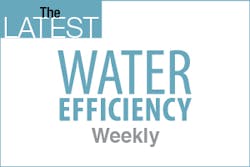LA Regional Water Board Files Lawsuit Against US Army Corps of Engineers for Clean Water Act Violations
After multiple violations of the federal Clean Water Act in the Los Angeles River and its tributaries, and a concern for future compliance, the Los Angeles Regional Water Quality Control Board (Regional Water Board) filed a lawsuit this week in U.S. District Court against the U.S. Army Corps of Engineers seeking compliance with the Clean Water Act.
Filing a citizen complaint, the Regional Water Board alleges the Army Corps failed to obtain the requisite water quality certification under the federal Clean Water Act (Section 401) and federal regulations before embarking on two dredge and fill operations in the Los Angeles River and its tributaries. The alleged violations took place between 2011 and 2012.
“The Los Angeles Regional Water Board has made every effort to work with the Army Corps of Engineers in seeking compliance with the Section 401 requirements of the Clean Water Act and federal regulations. Unfortunately, the Army Corps has consistently demonstrated a failure to comply,” said Charles Stringer, chair of the Los Angeles Regional Water Quality Control Board. “Their actions have forced the Regional Board to file suit in federal court to ensure compliance with laws that protect the water quality and environment of the Los Angeles River and its tributaries.”
The complaint addresses non-emergency projects, and the Regional Water Board will not ask the court to delay any emergency flood control projects that will ensure public safety in this El Niño year. Instead, the State’s water boards have worked with the Army Corps to use existing state water quality certifications to ensure that emergency work can go forward before anticipated heavy rains.
The first violation took place at the Verdugo Wash, which is a tributary of the L.A. River in Glendale, just north of downtown Los Angeles. This area of the L.A. River is known as the Glendale Narrows, and between Oct. 24 and Nov. 7, 2011, the Army Corps dredged 6.5 acres in Verdugo Wash, including the confluence of the Wash and the L.A. River. The Army Corps failed to acquire the Congressionally-mandated state certification to do this work, and the Regional Water Board was not made aware of this project until Jan. 13, 2012.
On Dec. 29, 2012, the Regional Water Board learned the Army Corps committed another violation of the Clean Water Act and federal regulations by removing riparian vegetation along Haskell Creek, a tributary to the L.A. River located in the Sepulveda Basin in December 2012. The Army Corps also conducted dredge and fill operations in the L.A. River itself during this time period. The Basin is a 2,000-acre flood management basin and wildlife reserve located on the upper portion of the L.A. River in the San Fernando Valley in Los Angeles County.
In both instances the Army Corps used heavy equipment to remove vegetation, and it is alleged that during both dredge and fill operations little was done to mitigate the discharges of oil, grease and other pollutants into these waters of the United States. These two activities are also alleged to have discharged sediment into the L.A. River that could affect water quality and aquatic life and wildlife habitat. Excessive discharges of sediment can limit sunlight from entering the water and in turn inhibit the growth of aquatic plants and destroy spawning habitats for bottom-dwelling organisms and larval fish. Neither instance involved the Army Corps’ authority under the Clean Water Act or federal regulations to alleviate an immediate emergency through repair or protection activities, and the Regional Water Board is not alleging that the Army Corps misused or is misusing this authority.
If the Army Corps had complied with the Section 401 certification process in the Clean Water Act for both projects in Verdugo Wash and the Sepulveda Basin, the Regional Water Board could have imposed conditions on these operations to guard against potential water quality impacts.
The Regional Water Board alleges that these violations of federal requirements are just two examples in a long history of non-compliance by the Army Corps. The Regional Water Board asserts that these types of violations have and will continue to occur as the Army Corps operates six flood risk management facilities, and approximately 34 miles of flood control channels and levees within Los Angeles County. Regional Water Board staff contends the Army Corps will continue to violate Section 401 requirements if it engages in clearing activities with heavy machinery; removing debris and vegetation below the ordinary high water mark of the L.A. River; conduct channel bed and bank repair activities; and do in-water work on water diversion structures.
The Regional Water Board’s complaint seeks a court order declaring the Army Corps’ discharge activities without a Section 401 certification constitute violations of the Clean Water Act, and direct the Army Corps to comply with the Clean Water Act, including ceasing all dredge and fill operations and discharges of pollutants into the L.A. River and its tributaries unless it obtains a valid Section 401 certification for each operation, or demonstrates compliance with the Clean Water Act.
